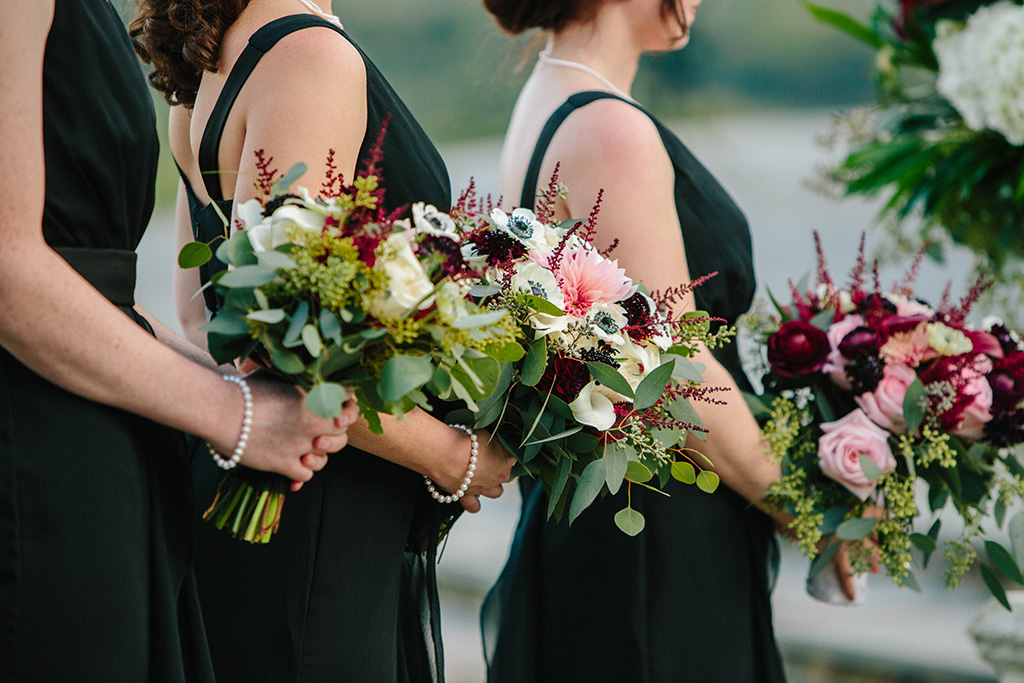How do we get a marriage license in Virginia?
In Virginia the couple (both of you) must go to any Circuit Court Clerk's office during business hours, Monday - Friday, with proper ID and $30.00. Your Virginia marriage license can be used anywhere in the Commonwealth within 60 days of the date it was issued. There is no waiting period and no blood tests are required in Virginia. Additionally, no witnesses are required for a wedding ceremony in Virginia. For further details on where to go and legal requirements please visit the website for the Virginia Judicial System. The 2 Circuit Courts in the Charlottesville area are:
City of Charlottesville
315 East High St.
Charlottesville, VA 22902
(434)970-3766
County of Albemarle
501 East Jefferson St.
Charlottesville, VA 22902
(434)972-4083/4085
What is Interfaith?
Interfaith is a philosophy of celebrating unity within diversity. Interfaith is a way of finding common ground, it takes no position on any organized religion or spiritual path but rejoices in all expressions of love of Spirit and of each other. It is not a religion itself but seeks to create bridges of respect and understanding between one set of beliefs and traditions and another.
Interfaith emphasizes the universal spiritual principles of love, service and human compassion as taught by all the world's faiths. Acceptance and celebration of our differences while acknowledging our oneness in Spirit is at the heart of Interfaith. Recognizing that all of the world's faiths and spiritual paths contain divine inspiration and guidance for living our lives in love and fellowship, Interfaith encourages each of us to be a living expression of our own spiritual values while opening our hearts, minds and spirits to all of the different expressions of Truth we find on our diverse and beautiful planet.
What is an Interfaith Minister?
Interfaith ministers are trained professionals, ordained by one of several Interfaith Seminaries in the US and abroad. Interfaith ministers can serve as companions and guides in helping people to deepen or reclaim the nourishment of their own religious roots while opening their hearts to the wisdom and beauty of other traditions and teachings. Regardless of their own religious tradition or spiritual path, Interfaith ministers are trained professionals who:
- Are dedicated to serving the spiritual needs of all those who seek their guidance, counsel, and assistance, without regard to race, religion, socioeconomic status, sexual orientation, ethnic background, gender or age.
- Have chosen to learn about, respect, and appreciate the diversity of paths to the Divine and to look for the universal truth in each one.
- Seeks to promote understanding, harmony, and love among people by emphasizing what is universal in the teachings of the many spiritual paths and faith traditions.
- Are committed to the ongoing deepening of their own spiritual practice and connection to the Divine, so that their service to others is always grounded in the integrity of their own spiritual life.
After our wedding, how do we get copies of our Marriage License?
In Virginia your Wedding Officiant is required by law to execute (fill out) both copies of your marriage license and return them to the Court from which they were issued within 5 days. The Clerk of the Court then records the license and is able to issue Certified Copies to you upon request. A certified copy of your marriage license is what is needed for any name or status changes you may wish to make such as with the DMV, Social Security Administration, Human Resources/Benefits office and so forth. Certified copies cost $2.50 each and must be obtained by you directly from the Court, you can not get copies of your license from your Officiant.
How can we include our children in our ceremony?
Including children from prior relationships in your wedding ceremony can be a way of helping them feel secure in their place in the new family that you are creating as well as giving them an important part to play in the biggest part of the day. There are many ways of including children of all ages in your ceremony. Each ceremony can be adapted to suit your vision.
- Unity Candle Ceremony: A Unity Candle ceremony can be especially pretty at night time and is easiest to complete successfully indoors (due to the fact that the candles can blow out with the slightest breeze outdoors. Each member of the new family (bride, groom and each child) has their own candle (usually a taper). Sometimes a different color candle for each person is a nice way to express the acceptance of each individual's unique contribution to the family. In the ceremony all of the individual flames are brought together to light a larger "family candle" in the center, signifying the light and love of each individual merging to form a new family. There are many wording variations.
- Unity Sand Ceremony: Similar in symbolism to the Unity Candle, a sand ceremony is better suited to an outdoor ceremony as there is not an issue with the possibility of wind. Each individual who is participating would have a small, clear class container with colored sand (this can be obtained at any craft store), again symbolizing that individual's unique contribution. Then all the sand is poured together simultaneously into a larger clear glass container in the center, showing how your lives are now entwined but still unique and vibrant, in the new family.
- Gift-giving & words of love: Another sweet way of showing children how much they mean to you is simply giving them a special gift (a necklace or something special), as part of the ceremony. This typically happens after the ring exchange (which is your gift to each other) and can also include some words of love from the "incoming" parent to their new step-child.
Can you suggest some ways of honoring our families in our ceremony?
There are 3 primary categories of friends and family that you might want to honor in your ceremony:
- Deceased: Often making mention, either obliquely or specifically, to those who have died is an important element in a wedding ceremony. Your officiant can offer many options for how best to approach this sensitive issue and can be sure that it is accomplished without shifting your ceremony too far from joyful to tearful.
- Absent: As you day approaches it may become clear that there are important family or friends who will not be able to attend for any number of reasons: illness, deployment, pregnancy, distance, etc. It is often nice to acknowledge these individuals in your wedding ceremony.
- Present: Usually your nearest and dearest are, literally, sitting right in front of you. You may choose to include some extra words of love and appreciation to them or may even choose to give the primary ones a little memento of your love and gratitude such as a scroll (see photo) with a personal message.


My fiancé and I chose Claire Frances of Sacred Ground Ceremonies as the officiant for our wedding and were so pleased that we did. She was just wonderful - easy to work with, flexible, and very supportive and accommodating. The questionnaire she sent us was very detailed and thoughtful, and from our answers, she crafted a lovely, very meaningful and personal ceremony that was just perfect for us. She worked well with our wedding coordinator, and we all appreciated her input and suggestions regarding the ceremony. Thank you, Claire, for making our special day so memorable.
LAURA + RYAN
Photo Credits: (top)Melissa & MacKenzie by Dominique Attaway Photography; (bottom) Gabriella & Hunter by Sam Stroud Photography